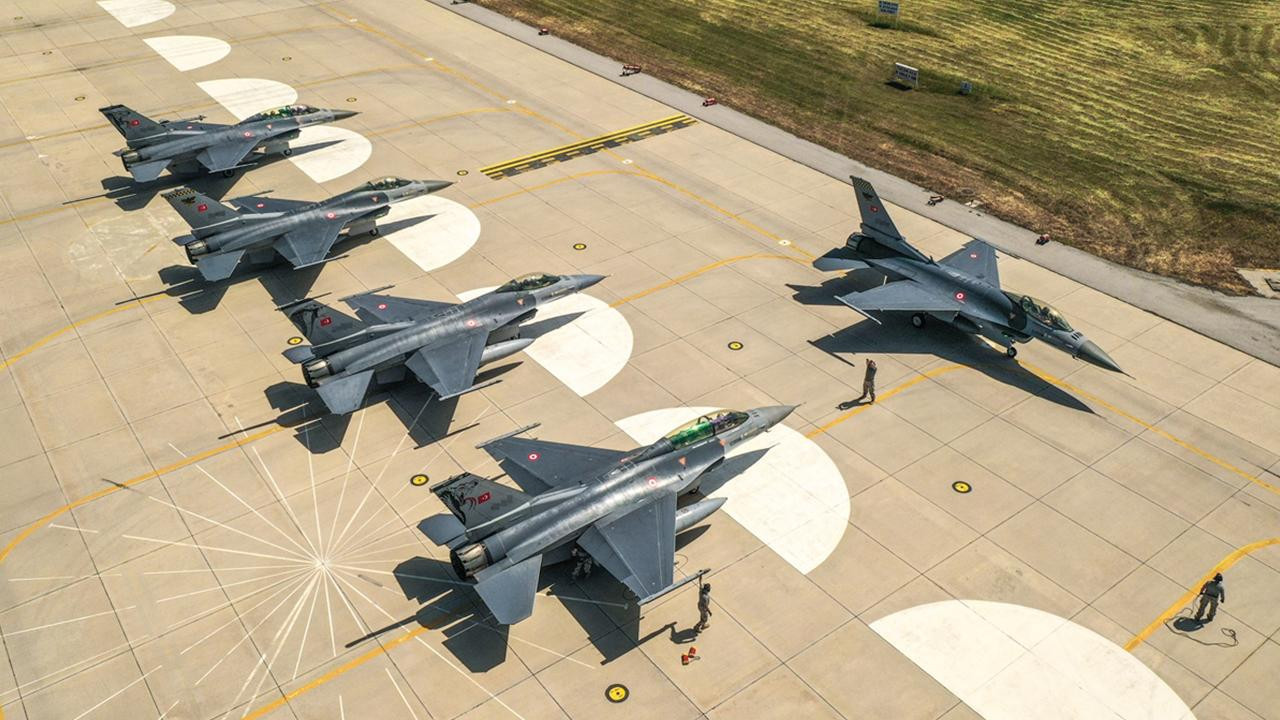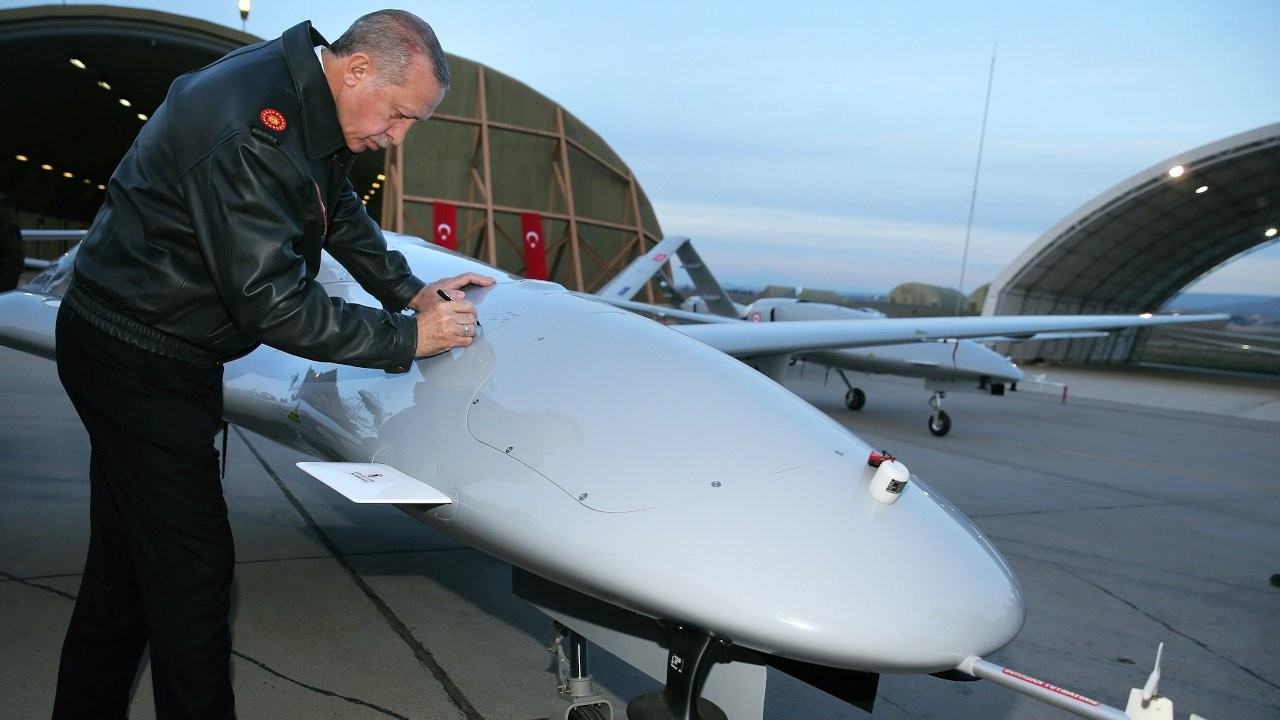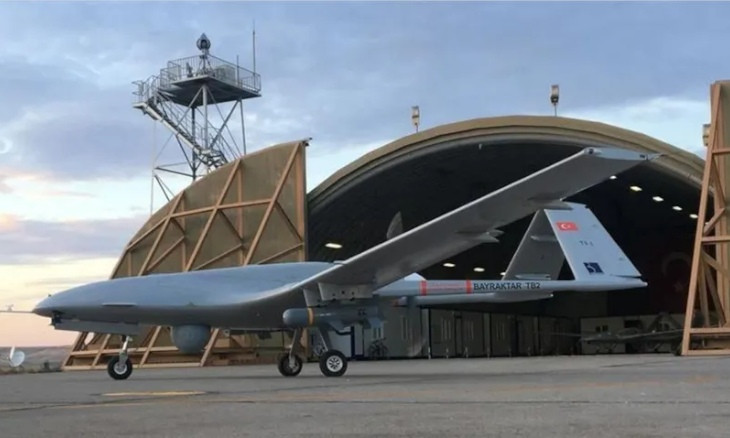Canada to resume arms exports to Turkey following Sweden NATO backing
Canada and Turkey have struck a deal to resume Canadian drone parts exports, conditioned on Turkey's increased transparency about their use, sources told Reuters. The agreement is set to take effect after Ankara completes the ratification of Sweden's NATO bid.
Reuters
Canada and Turkey have reached a deal to restart Canadian exports of drone parts in exchange for more transparency on where they are used, and it would take effect after Ankara completes its ratification of Sweden's NATO bid, two sources told Reuters.
After 20 months of delay, Turkey moved swiftly this week to endorse Sweden's membership in the western military alliance, including a parliamentary vote and presidential sign-off, leaving Hungary as the sole ally yet to ratify it.
Turkey is expected to send the final documents to Washington as soon as Jan. 26, which would clear the way for Canada to immediately lift the export controls that it adopted in 2020, the two sources said, requesting anonymity.
The agreement was reached in early January after months of talks, said one person familiar with the process. A second person familiar with the plan said the sides agreed it would take effect after Sweden's ratification was complete.
Turkey's foreign ministry declined to comment.
Canadian Foreign Ministry spokesperson Charlotte MacLeod told Reuters that while the export controls currently remained in place, Ottawa aimed to resolve the issue with Turkey given its status as a NATO ally.
"Canada and Turkey continue to engage in frank exchanges on our bilateral, economic and commercial relations," she said.
Sweden's lengthy bid process frustrated some NATO members over what they viewed as Turkey's transactional approach, which led to concessions from Stockholm and other allies regarding arms exports and counterterrorism measures.
U.S. leaders have said Turkey's ratification of Sweden's NATO membership clears the way for Ankara's long-sought purchase of U.S. F-16 fighter jets.
Canada suspended drone technology sales to Turkey in 2020 after concluding its optical equipment attached to Turkish-made drones had been used by Azerbaijan while fighting ethnic Armenian forces in Nagorno Karabakh, an enclave Baku has since retaken.
Ottawa halted talks on lifting them in 2022 when Ankara raised objections to both Finland and Sweden's NATO bids. But it re-started talks after a NATO leaders summit in July 2023, Reuters reported at the time.
Canada expects Turkey to provide end-user transparency
Under the agreement, Ankara would provide Ottawa information on the end-users of Canadian-made equipment, especially if re-exported to non-NATO members, the sources said.
The "notification process", standard under the international arms trade, covers Wescam sensors used in Turkey's Bayraktar TB2 drones and other dual-use goods and arms-related exports.
The first source said the deal improves transparency and communication between the sides and aims to avoid disagreement as in 2021, when Canada said Azerbaijan's use of the camera equipment violated Turkey's end-user assurances.
Ankara has repeatedly criticized export controls as contrary to the spirit of the NATO alliance. In the past it also faced trade embargoes by France, Germany, and Sweden over tensions in the eastern Mediterranean and its operations in northern Syria.
While Ankara has called on Canada to lift the restrictions, it has also said that it will soon be able to produce the drone parts it imports, including optical equipment, on its own. Several countries, including Ukraine, Ethiopia and Pakistan, have bought Turkish drones after their battlefield successes.
On Jan. 23, Turkey's Foreign Ministry said it hosted Canada's associate deputy foreign minister, Cindy Termorshuizen, for talks on "regional and international issues", without elaborating.
On Jan. 26, President Tayyip Erdogan said Turkey's ratification of Sweden was welcomed by "Canada, Sweden, and all Western countries", and was viewed as a source of strength within the North Atlantic Treaty Organization (NATO).
Under NATO rules, Turkey must deposit the final document - the instrument of ratification - at the U.S. State Department archives to complete its Sweden ratification.
Canada was the first NATO country to ratify the entry bid Sweden made in 2022 after Russia's full-scale invasion of Ukraine.

 US envoy anticipates swift F-16 sale to Turkey following Sweden's NATO accession approvalDiplomacy
US envoy anticipates swift F-16 sale to Turkey following Sweden's NATO accession approvalDiplomacy Canada scraps export permits for drone technology to Turkey, complains to AnkaraDiplomacy
Canada scraps export permits for drone technology to Turkey, complains to AnkaraDiplomacy Canadian company stops supplying aircraft engines to Turkey over Nagorno-Karabakh conflictEconomy
Canadian company stops supplying aircraft engines to Turkey over Nagorno-Karabakh conflictEconomy Canada suspends drone technology sales to Turkey after claims of use by Azeri forcesDiplomacy
Canada suspends drone technology sales to Turkey after claims of use by Azeri forcesDiplomacy